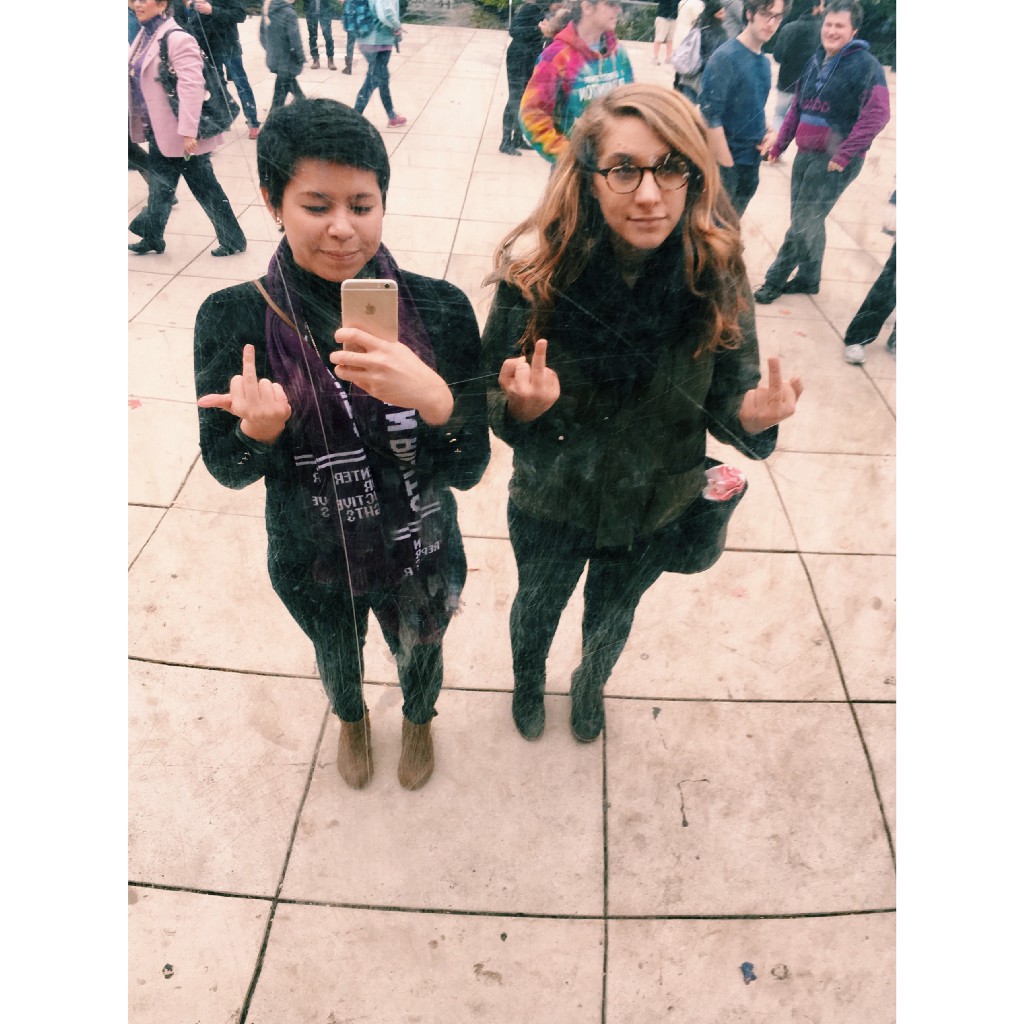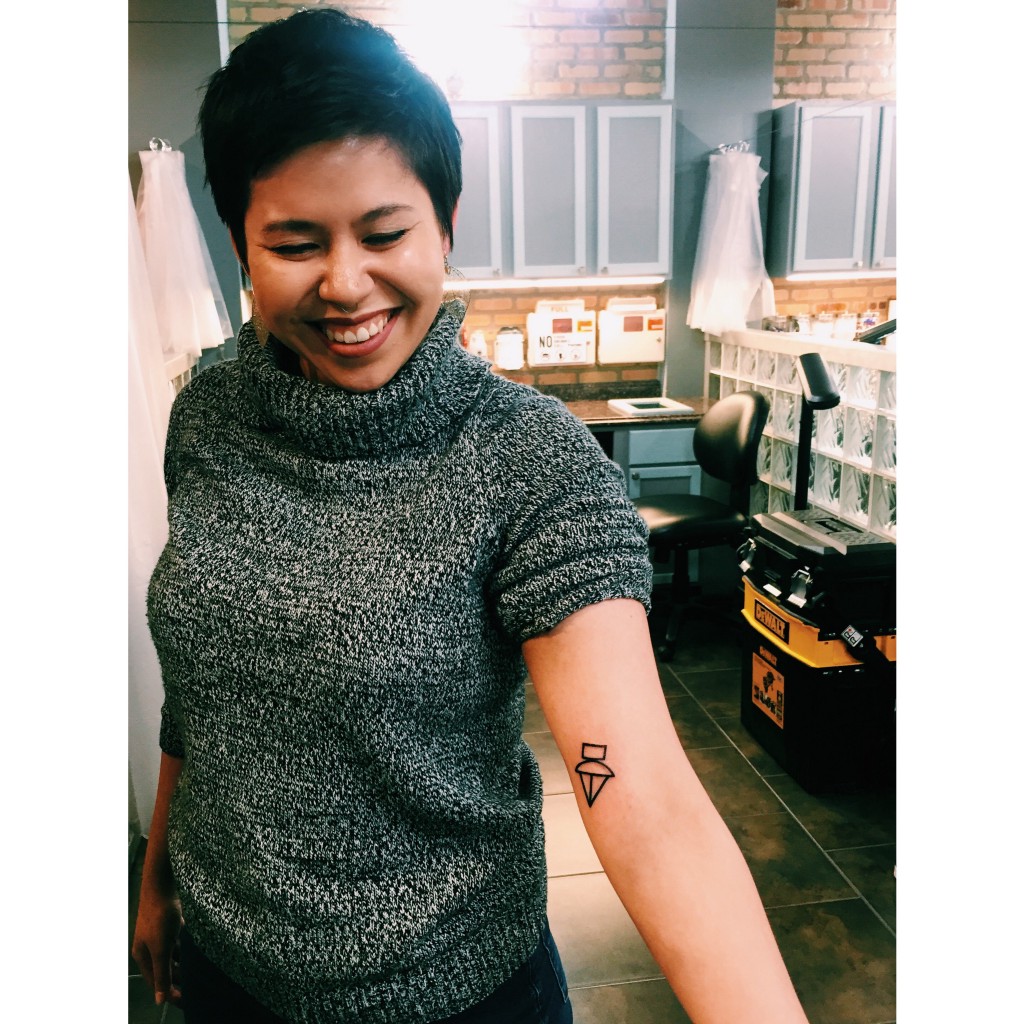Money Means Something Different to Me In the Aftermath of the Election
I spent $1,758 in the week after the election. That’s too much to spend.

The morning after the election, I woke up still drunk at 7:45 AM, reached for my phone, and texted my friend Jenny: “If I can find a ticket can I meet you in Chicago?”
She had planned a trip for Veteran’s Day weekend, but I told her the week prior that I couldn’t swing a plane ticket. I work at a nonprofit, and even though I’m thrifty AF, my salary barely covers my monthly expenses. The savings I’ve accumulated from past jobs and freelance gigs is usually spent on necessities like health care or new tires for my car.
But on November 9th, before even getting out of bed, I changed my mind and found myself typing my credit card information into Southwest.com. The flight leaving Houston was $184.98, and the return flight was $263.98. I bought the tickets, sent an email to my boss containing only the words “Personal/sick day,” and tried to go back to sleep.
In the aftermath of a crusty demagogue’s triumph over our nation, I have impulse-bought: the plane tickets ($448.96); five “FUCK TRUMP” bumper stickers off of Etsy ($10); one gold brass bracelet stamped with the words “Bad Bitch” ($24); a tattoo of the Voyager to remind me of the beauty and depth of the human quest for understanding ($125); at least 16 beers ($94); countless meals shared with friends while discussing what the hell happens now (a lot of money; don’t make me count).
Carelessly dropping cash is very out of character for me, and spending has never been my preferred emotional coping mechanism. If anything, I’ve consoled myself in times of crisis by becoming more austere with my budget — a tactic that has paid off when I’ve been forced to leave toxic living situations abruptly or deal with health crises. I eat my emotions; I drink my emotions; I ignore my emotions. But I don’t think I’ve ever used my credit card to dig myself out of a depression until the week after the election.
Around 9 PM on the night of Tuesday, November 8th, a cold, sharp anxiety settled into my chest. For days, I waited for it to loosen its grasp, and then I realized that it would be there for at least four years, possibly longer. This new normal has changed my perspective. It’s made me think differently about my role in aggressively resisting injustice. It’s made me question whether I could ever have children. And, curiously, it’s made me not so distressed about handing over my credit card when I want to buy a plane ticket or get a tattoo.

I probably would have stopped myself before. I would have told myself I couldn’t justify charging half a grand to my credit card for a “self-care vacation” to Chicago. It has little to do with self-control; if I want to, I can be responsible with my money. No, it’s something else entirely: Since the election, my desire to suppress my “fuck it” impulse has been seriously inhibited. I have yet to determine if this is a permanent condition.

Money has always felt like a fragile arrangement to me. In the beginning, when Sumerians first began trading symbolic metal tokens for goods, everyone had to agree to buy into the myth that certain otherwise commonplace objects have more inherent value than others. Later, we agreed to believe in the myth that certain numbers, appearing in ink (a paycheck) or as pixels on a screen (your bank’s app), have inherent value too. There’s no reciprocal material exchange between buyer and seller when I swipe my credit card to pay for my coffee; the numbers in my account go down as the numbers in someone else’s account go up. Currency is only a gesture. It’s a promise: When you need these numbers to materialize, as food or gas or your kid’s school supplies, they’ll get the job done.
The thing is, that’s not always what happens. As soon as our collective faith in these myths starts to slip away, the whole system caves in. People wait in lines for hours to withdraw their life savings in cash from their banks. People sell their stocks and the market collapses. People trade their paper money for guns and canned food. The government compensates by revving up the ol’ cash printing machine. And the last people still trusting in the old system are the ones carrying home their day’s wages in wheelbarrows filled with useless paper bills.
I really, really don’t want to be the sucker pushing a wheelbarrow.
I’m being dramatic and reductive, of course. There’s no guarantee that the collision of rapidly accelerating global warming, an energized white supremacist movement, and aggressively isolationist economic policies will culminate in unparalleled catastrophe while a bright orange serial rapist sits in the Oval Office. But there’s also little evidence to suggest that such catastrophe will be avoided. On good days, it feels like a coin flip.
Recently, I read an article that advised stocking up on toilet paper and diapers in preparation for massive societal collapse. These items can easily be used as currency in a world lacking order, the author wrote. I decided against the diapers: The post-apocalyptic world where I find myself bartering for food with a beleaguered parent and a pants-less infant is probably a post-apocalyptic world I don’t want to live in.
But I bought the toilet paper. I went to Costco and purchased two bulk-sized packs the day after I read the piece. Maybe a Trump presidency won’t spell doomsday, but the threat is real enough to prepare for The Worst—and if The Worst happens, a roll of toilet paper feels like a more stable asset than a piece of paper with Andrew Jackson’s face on it.

If currency is a fragile, invisible system of trust between strangers, then political power is an even more tenuous house of cards.
What gives our Toupéed-Troglodyte-Elect access to the White House, security clearance, and his own elite police force is not the Electoral College or tradition or even the Constitution. It is our consent. Our collective trust in the value of this structure — much like our collective trust in the value of money — is what imbues the term “President” with meaning. Americans’ consent is the currency of elected officials’ power.
I’m not trying to say that we deserve what’s coming to us if we reluctantly acquiesce to a Trump presidency. And I understand the problems and limits of a “not my president” approach. The self-proclaimed sexual assailant who mocks disabled people and calls for violence against peaceful protestors is the person that the Electoral College will likely designate to be our next president.
Still, though: what if we stopped believing in that myth too?

Financial advisors tell you to put your savings somewhere safe and not touch it until you’re ready to retire or buy a house or pay for your kid’s college. That advice made sense to me before Election Day. But after watching a cheese-flavored cornmeal snack with only a hazy understanding of the rule of law become President-Elect, I could easily imagine a future in which those numbers lost their meaning.
I’m not particularly concerned with the direction of the markets or what a Trump presidency will mean for my employer-sponsored retirement account. What concerns me is the time I’ll spend between now and my life post-apocalypse, when I’m living in a tent in the woods, cooking squirrel stew out of a hubcap, and running the most successful toilet paper bartering business in a 12-mile radius. If things get bad—economic collapse, a police state, food rationing, medication shortages—I’m not going to need a Roth IRA or a credit card. If things get bad, those things are just numbers on websites.
At this point, cashing out completely seems like paranoia. On the other hand, pretending that I can preserve my trust in our economic structure is a delusion.
So by playing fast and loose with my money, I guess I’m inhabiting the middle ground. I’m less sure than ever that my cash or credit will mean anything in ten years, so I might as well buy the “Bad Bitch” bracelet now, right?
Money means something different to me than it did on November 7th, 2016. Under this light, it feels more imaginary. It feels less dangerous to open the valve on my savings account while it can still afford me a plane ticket, a beer, a stack of toilet paper rolls. Money always felt like a myth; that part hasn’t changed. Now, though, it feels like a myth that requires more mindless faith than I have to give.
Natalie is a writer and activist living in Texas. She’s on Twitter.
Support The Billfold
The Billfold continues to exist thanks to support from our readers. Help us continue to do our work by making a monthly pledge on Patreon or a one-time-only contribution through PayPal.
Comments